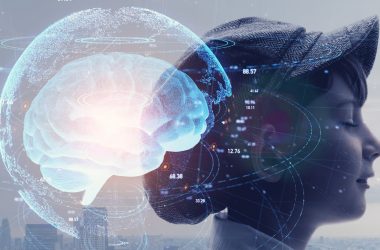Integrating Artificial Intelligence (AI) in healthcare is revolutionizing the field, driving advancements rapidly transforming patient care, disease diagnosis, and drug discovery. This powerful convergence of technology and medicine is augmenting human expertise, enabling us to tackle complex health challenges and promising a future of personalized healthcare.
Aiding Diagnosis with AI
AI’s influence is evident in the diagnostic process. Machine learning algorithms, a subset of AI, analyze vast databases of medical images, detecting subtle patterns invisible to the human eye. These algorithms are trained on thousands of X-rays, CT scans, and MRIs, learning to identify indicators of diseases, such as cancer, brain anomalies, and heart conditions.
Studies reveal that AI can diagnose conditions like skin cancer, lung cancer, and retinal diseases with a precision comparable to trained clinicians. For instance, Google’s DeepMind technology has demonstrated proficiency in diagnosing age-related macular degeneration, a leading cause of blindness. The system’s accurate and early detection can lead to more timely treatments, potentially saving lives.
ADVERTISEMENT
AI in Drug Discovery
Drug discovery is a time-consuming and expensive process. AI is dramatically shortening this timeline by simulating the interaction between drugs and proteins, predicting drug efficacy, and identifying potential side effects. Deep learning techniques, genomics, and electronic health records offer a paradigm shift toward precision medicine – the development of targeted treatments based on individual genetic makeup.
For instance, companies like Insilico Medicine use AI for bioinformatics, identifying target molecules for drug development. By reducing the trial-and-error nature of drug discovery, AI is accelerating the journey from laboratory to pharmacy, translating to lower costs and faster delivery of life-saving medicines.
AI-Powered Robotics in Surgery
Surgical robots guided by AI are becoming more commonplace. These sophisticated machines offer unprecedented precision, flexibility, and control, reducing the risk of complications. For instance, the da Vinci Surgical System allows surgeons to perform complex procedures with less invasiveness, leading to quicker patient recovery.
ADVERTISEMENT
Furthermore, AI can analyze pre-operative medical records to guide surgeons during the procedure, providing real-time analytics that can enhance surgical precision. While the human touch will always be a fundamental part of the surgery, AI-powered robotics offers an extra layer of accuracy and safety.
AI in Predictive Analytics
Healthcare systems worldwide are increasingly utilizing AI-powered predictive analytics to optimize healthcare outcomes. This use of AI involves analyzing patient data and identifying patterns to predict patient-specific health risks and suggest personalized preventive measures. AI can predict the likelihood of hospital readmission, the risk of chronic diseases, and even future medical expenses, enabling preventative care and efficient resource allocation.
Challenges and Future Prospects
Despite its potential, the implementation of AI in healthcare comes with challenges—concerns regarding data privacy and the need for extensive validation and regulatory compliance present obstacles. AI’s clinical use demands high accuracy, as errors can have severe consequences. Hence, constant testing and refining of AI systems are essential to ensure patient safety and trust.
ADVERTISEMENT
Moreover, addressing the ethical implications of AI in healthcare is crucial. The integration of AI should not lead to a reduction in human interaction in care settings. Instead, it should free healthcare professionals to spend more time on direct patient care.
Conclusion
In conclusion, AI holds immense potential in reshaping healthcare, improving diagnosis, personalizing treatment, and enhancing patient care. However, realizing this potential necessitates continued research, clear regulatory guidelines, and a thorough understanding of ethical implications. As we navigate this exciting intersection of technology and medicine, the central goal remains clear – leveraging AI to improve patient outcomes and foster a healthier future.








